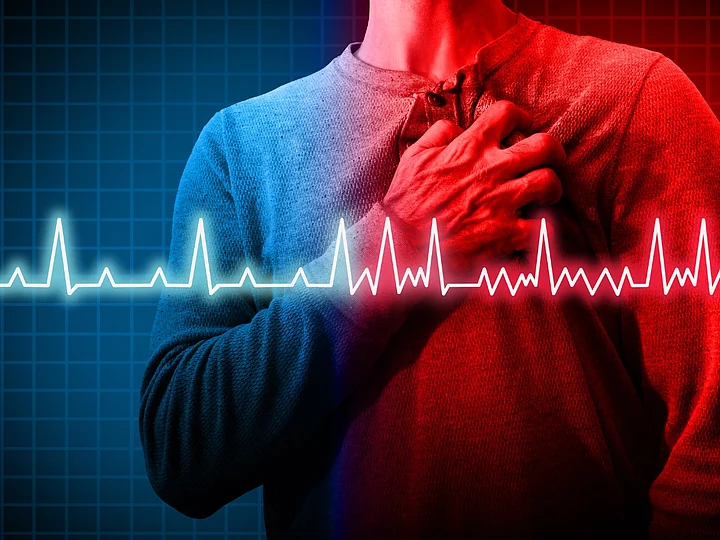Heart arrhythmia is a condition of irregular heartbeat that happens when the electrical signals coordinating the heart's beats cannot function properly. The faulty signaling may cause the heart to either beat too fast, too slow, or irregularly.
Heart arrhythmia may feel like the heart is fluttering or racing, which is often not a problem but it may result in life-threatening signs and symptoms. It is normal for the heartbeat to differ from time to time – like the heart beats faster after a workout and beats slowly while a person is asleep. Let's have a detailed understanding of the condition with the help of symptoms, types, diagnosis, and treatment.
Heart Arrhythmia: Types
According to the doctors of Cleveland Clinic, heart arrhythmias are differentiated on the basis of the heartbeat and its speed.
Supraventricular arrhythmia is the type of arrhythmia that begins in the upper chambers of the heart. "Supra" means above.
Ventricular arrhythmia is the type that begins in the ventricles, meaning, the lower chambers of the heart.
Bradyarrhythmia refers to the slow heart rhythms caused due to a disease affecting the conduction system of the heart.
The upper or lower chambers of the heart may experience a fast or slow heartbeat rate.
Heart Arrhythmia: Signs and Symptoms
According to the doctors of Mayo Clinic, these are the common signs and symptoms of heart arrhythmia:
Fluttering in the chest
Faster heartbeat (tachycardia)
Slow heartbeat (bradycardia)
Chest pain
Shortness of breath
Anxiousness
Fatigue
Dizziness
Sweating
Weakening of the heart muscle or low ejection fraction.
Heart Arrhythmia: Causes
According to US NIH, there are several risk factors and causes of the condition, some of them being:
Coronary artery disease
Irritable tissue in the heart may be genetic
Changes in the heart muscle (cardiomyopathy)
Valve disorders
Electrolyte imbalances in your blood
History of a heart attack
Heart surgery
Other medical conditions
Heart Arrhythmia: Diagnosis and Treatment
A cardiologist generally performs a physical examination and discusses the signs and symptoms, and after an assessment, the doctor may perform various tests to confirm the presence of an irregular heart rhythm.
Electrocardiogram (ECG or EKG) in which a picture is taken of the electrical impulses traveling through the heart muscle.
Stress test to record arrhythmias that are the result of intense exercise. It helps determine any underlying heart disease or coronary artery disease as well.
Echocardiogram is a type of ultrasound check for the presence of a heart muscle or valve disease.
Cardiac catheterisation helps determine the cause of arrhythmia and confirm if it is due to coronary artery disease. This also tests if your heart muscle and valves are working.
An electrophysiology study (EPS) records the electrical activity and helps find the cause of the abnormal rhythm to determine the best treatment.
The tilt table test helps record blood pressure and heart rate on a minute-by-minute basis to evaluate heart rhythm, blood pressure, and other measurements with the changing position.
The treatment for heart arrhythmia includes various medications, and the condition can be managed with a few lifestyle changes as advised by the doctors. Catheter procedures, implanted devices, or surgery may also help control or eliminate fast, slow, or irregular heartbeats.

